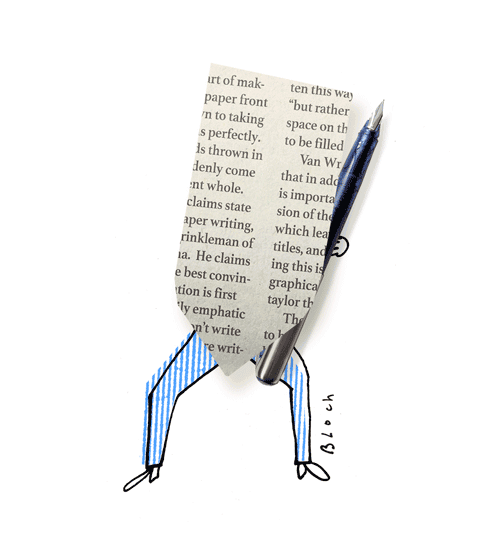Are you concerned about the widespread belief that the news just can’t be trusted?
I am so concerned about that. Restoration of trust is vital, and one disappointment I had in my book is that I was not able to come up with new solutions for a lot of the problems that bedevil journalism. I do think that because attacks from Fox News and Sinclair and the Trump administration are so loud, news organizations have to become much louder in defending the importance and integrity of what we do every day. I rather like The Post’s slogan, “Democracy dies in darkness.”
What we do is no less important than when the founders created the First Amendment, seeing us as critical watchdogs against abuse of over-centralized power. Somehow we’ve thought it’s not our job to carry that message. It is our job—and for trust to be restored that message has to be louder.
Will The New York Times and The Post go the way of traditional British papers by leaning hard in a particular political direction?
Aren’t we there? Not to the same extent as in Britain. But on some days of heavy Trump developments, the news pages, particularly the headlines, bear an unmistakably anti-Trump coloring.
What intensifies that is, because Facebook has disaggregated everybody’s news reports, it’s made the branding of individual reporters more important. Something like a dozen of the Washington reporters for The Times have cable TV contracts on MSNBC and CNN. They go on these panels with partisans and former prosecutors. And though The Times and Post reporters on these shows may be careful and measured in what they say, it’s the lead-in questions and the rest of it that leads viewers to question their objectivity.
Since I started writing a political column for The Guardian, it’s gotten harder for me to find Republicans who will even talk to me. I’m trying to present both sides. But they say, “No, I don’t think I want to be identified in your column.” I guess it suggests treason for them to be talking with Jill Abramson, the former executive editor of the “failing New York Times.”
Would you, given the way events have unfolded, have chosen a different career?
Right after college I worked on a couple of campaigns, and toggled between becoming a journalist or full-time political activist.
Now, for the first time since then, I’ve found myself wondering whether you do more good trying the difficult and impossible task of electing people who are going to make the world better, or doing investigative journalism that opens people’s eyes to issues and things they need to know about. I’ve loved my career in journalism. It’s not like I have any regrets. But in the end, which path would have done the most good?
It would be very funny if, for 2020, I went back to working in a campaign, which isn’t completely out of the question.

